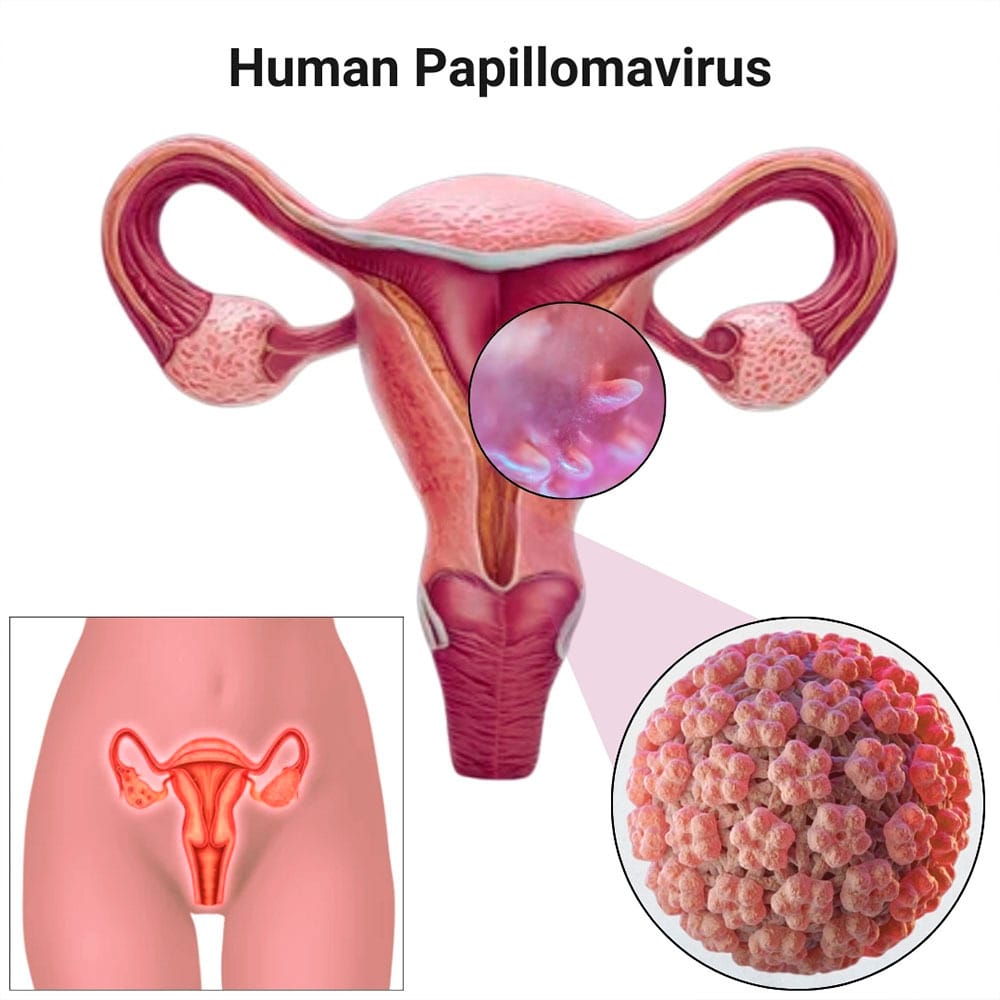What Is Human Papillomavirus (HPV)?
 The human papillomavirus (HPV) is a highly contagious virus, contracted through sexual transmission. HPV is perhaps the most widespread sexual infection, especially among sexually active people. It causes a variety of health problems, including cervical cancer. Early intervention is possible to manage the risks of HPV and curb its spread.
The human papillomavirus (HPV) is a highly contagious virus, contracted through sexual transmission. HPV is perhaps the most widespread sexual infection, especially among sexually active people. It causes a variety of health problems, including cervical cancer. Early intervention is possible to manage the risks of HPV and curb its spread.
Cohen Medical Practice (CMP) is a leading feminine and gynecological medical provider in Midtown New York. They provide effective treatments for sexually transmitted diseases (STDs), including HPV. Dr. Felix Cohen and his team of experts at CMP have the depth of skills and experience to offer solutions for sexual health problems, including complex cases like cervical cancer caused by HPV.
How Quickly Do HPV Symptoms Appear?
The appearance of HPV symptoms is unpredictable. They may occur a few weeks or several years after the infection. Many people live with the virus unknowingly until there is a serious problem like cervical cancer. That’s why screening tests like Pap smears are recommended for women, especially those that are sexually active.
The HPV latency period differs from woman to woman depending on factors such as the strain of HPV, other immunity problems, age and general health disposition.
When they appear, the symptoms include:
- Genital warts. These appear as small, raised and flat growths on the vagina, vulva, cervix and anus.
- Vaginal bleeding and/or discharge. Heavy bleeding between periods or after sexual intercourse and unusual discharge are common.
- Pelvic pain. Chronic pelvic pain and discomfort may develop in the long-term.
- Cervical dysplasia. This is abnormal cell growth on the cervix. It’s usually a prelude to cervical cancer.
How Do I Confirm if I Have HPV?
You need screening and testing to determine if you have HPV. Regular cancer screening and Pap tests are useful for detecting abnormal cell growth and detecting HPV, even when symptoms are unnoticeable. Your CMP New York gynecologist advocates for this screening to enable early intervention and improved treatment outcomes when HPV is detected.
You can expect your doctor to review your medical history, including sexual behavior to assess these risks. The doctor also performs a visual examination to look for genital warts.
The diagnostic tests that are employed include:
- Pap smear tests. This test assesses abnormal cell growth from a sample of cells collected from the cervix. It’s a routine but highly useful test in detecting HPV and cervical cancer.
- HPV DNA test. This test checks for the genetic material of HPV in cervical cells.
- Colposcopy. This is a microscopic test to visually examine the vagina and cervix for lesions and abnormal cell growth.
- Biopsy. This test collects a sample tissue from the vagina or cervix to examine for cancer cells.
- Pelvic exam. This is a physical examination of the pelvic area to check for abnormalities.
Are There Effective Treatment Options for HPV?
HPV is treatable, with the treatment options depending on the HPV strain, victim’s age and overall health outlook, including other conditions. If the latency period has been too long, it’s likely there will be a need for dealing with a more serious problem like cervical cancer.
Your experienced gynecologist at CMP New York offers the latest and most effective treatment options for HPV.
The treatment options may include a combination of:
- Cryotherapy. This entails freezing off genital warts using liquid nitrogen.
- Ablation. This involves burning off the warts.
- Surgical excision. Removing the warts surgically using techniques such as loop electrosurgical excision procedure (LEEP)
- Antiviral medications. Prescription drugs such as imiquimod help manage the infection.
What Happens if HPV Remains Untreated?
Untreated HPV causes serious and fatal consequences. The biggest risk is cervical cancer, which happens because of the abnormal cellular changes caused by the virus. A large number of diagnosed cervical cancer cases are directly related to HPV.
HPV also causes genital warts, which cause physical discomfort and emotional distress. These warts also disrupt sexual life as you may be afraid of potential partners seeing them. You may also feel inhibited by the fear of spreading the virus.
Other long-term consequences include:
- Anal cancer
- Vulvar cancer
- Vaginal cancer
- Chronic pelvic pain
- Recurrent HPV infections
How Can I Stay Safe from HPV?
A combination of medical and behavioral approaches works best in staying safe from contracting the HPV virus. HPV vaccines are effective against strains of HPV that cause warts and cancers. These vaccines are highly recommended, especially for young girls before they become sexually active, and for every woman younger than 26.
Vaccination can start as early as nine years old but is typically administered at 11 to 12 years.
Other tips for preventing HPV infection include:
- Practicing safe sex with the use of condoms and limiting sexual partners
- Regular screening and Pap tests to detect and manage HPV early
- Practicing good hygiene like washing hands after touching genital areas
CMP New York has effective treatment options for HPV and other STDs. Dr. Cohen and his team have helped thousands of women smile again with solutions that work for both simple and complex feminine health and gynecological problems. Contact Cohen Medical Practice (CMP) today to begin the journey to restoring your health.

